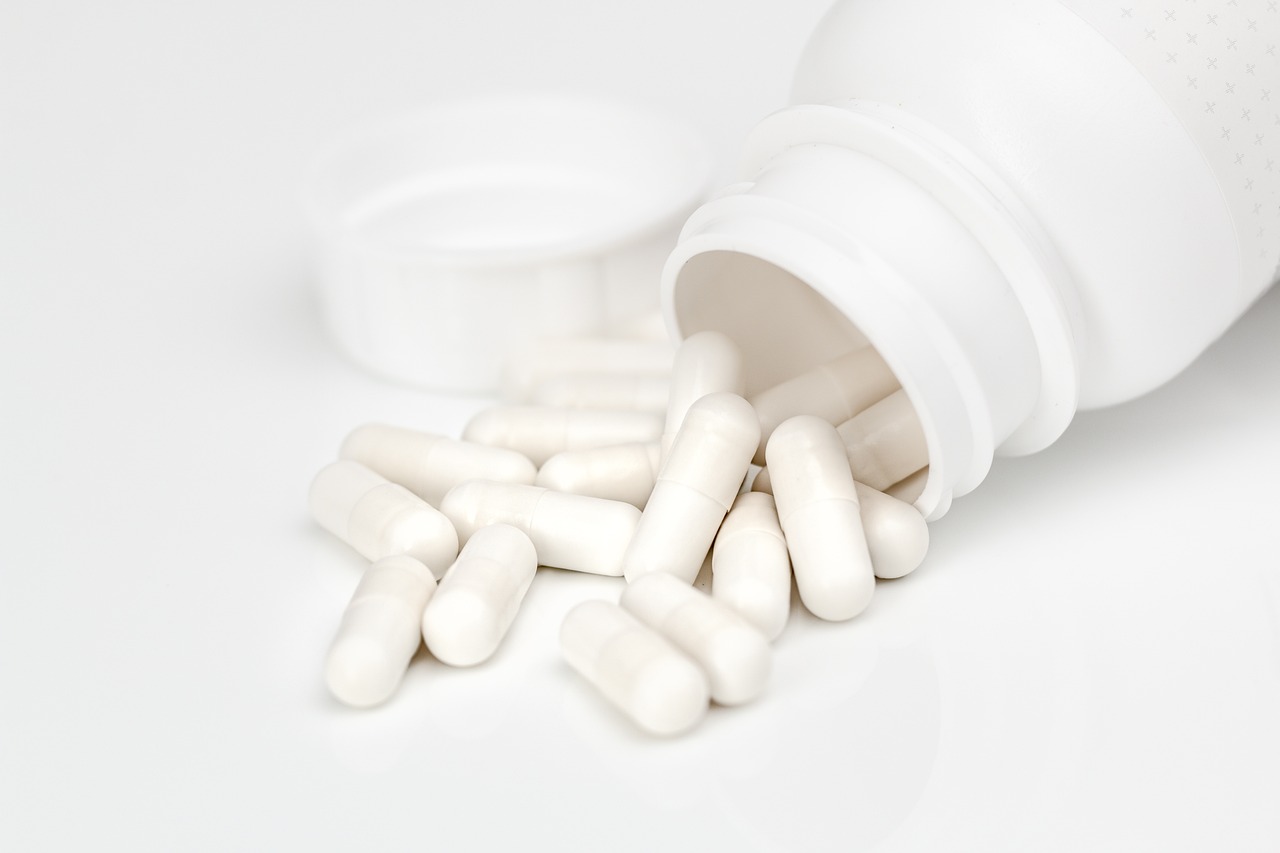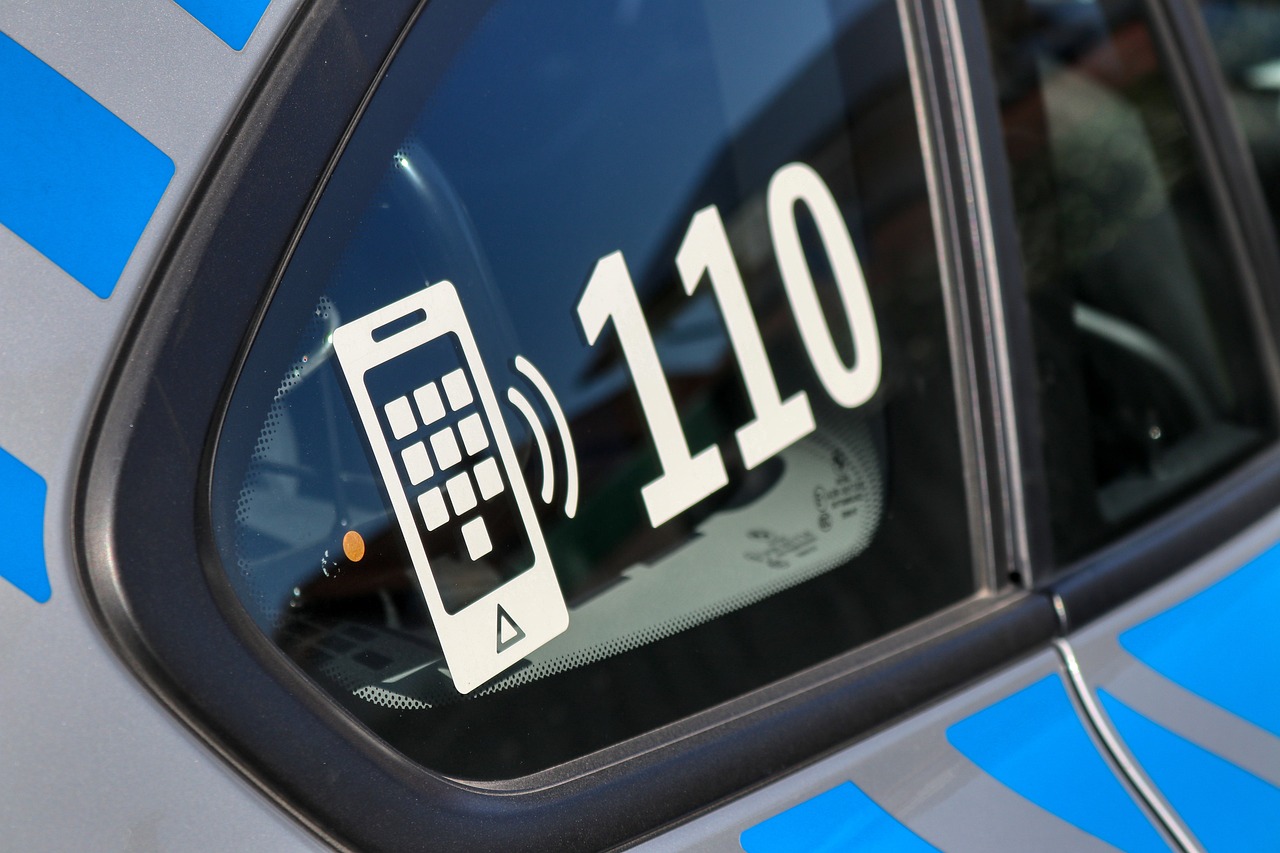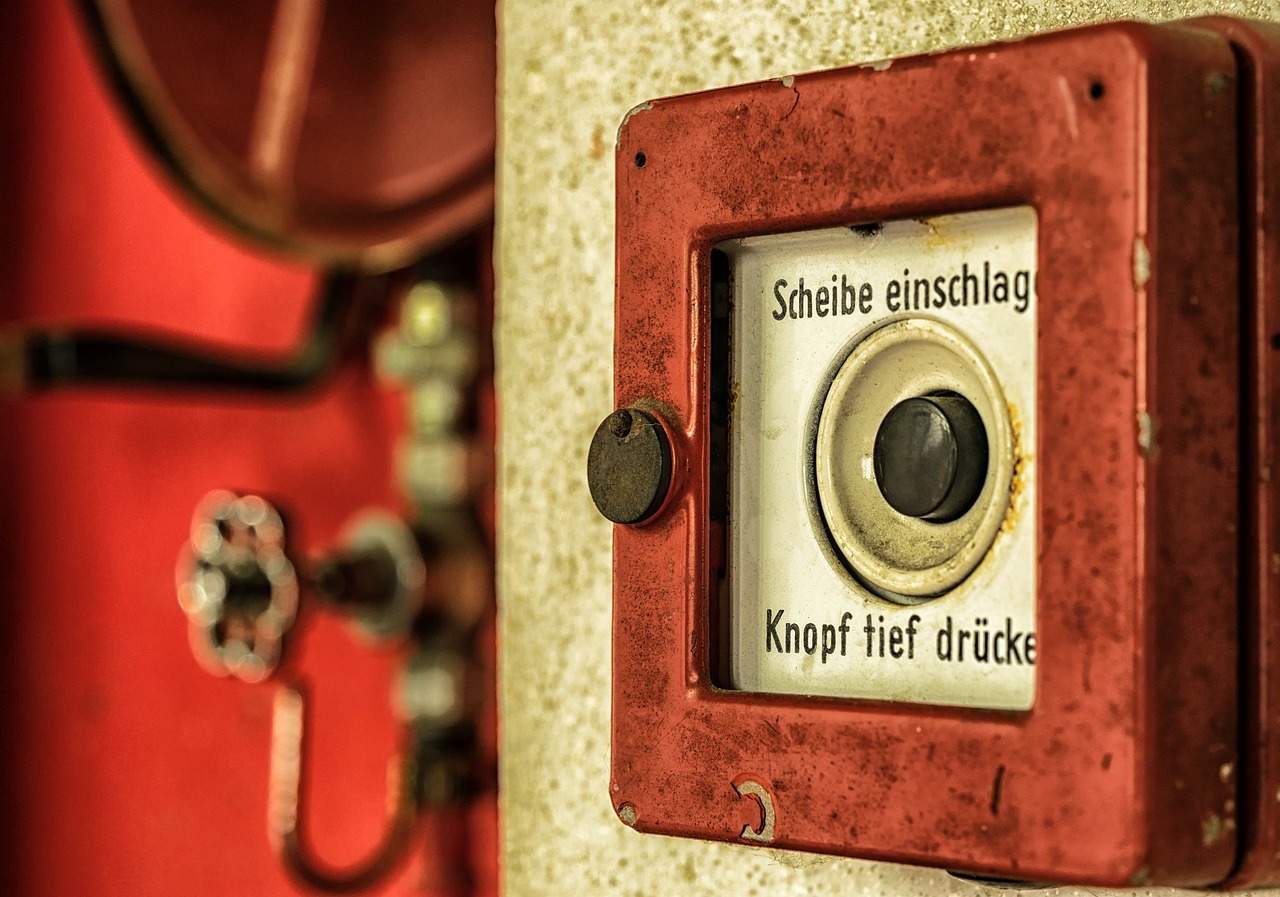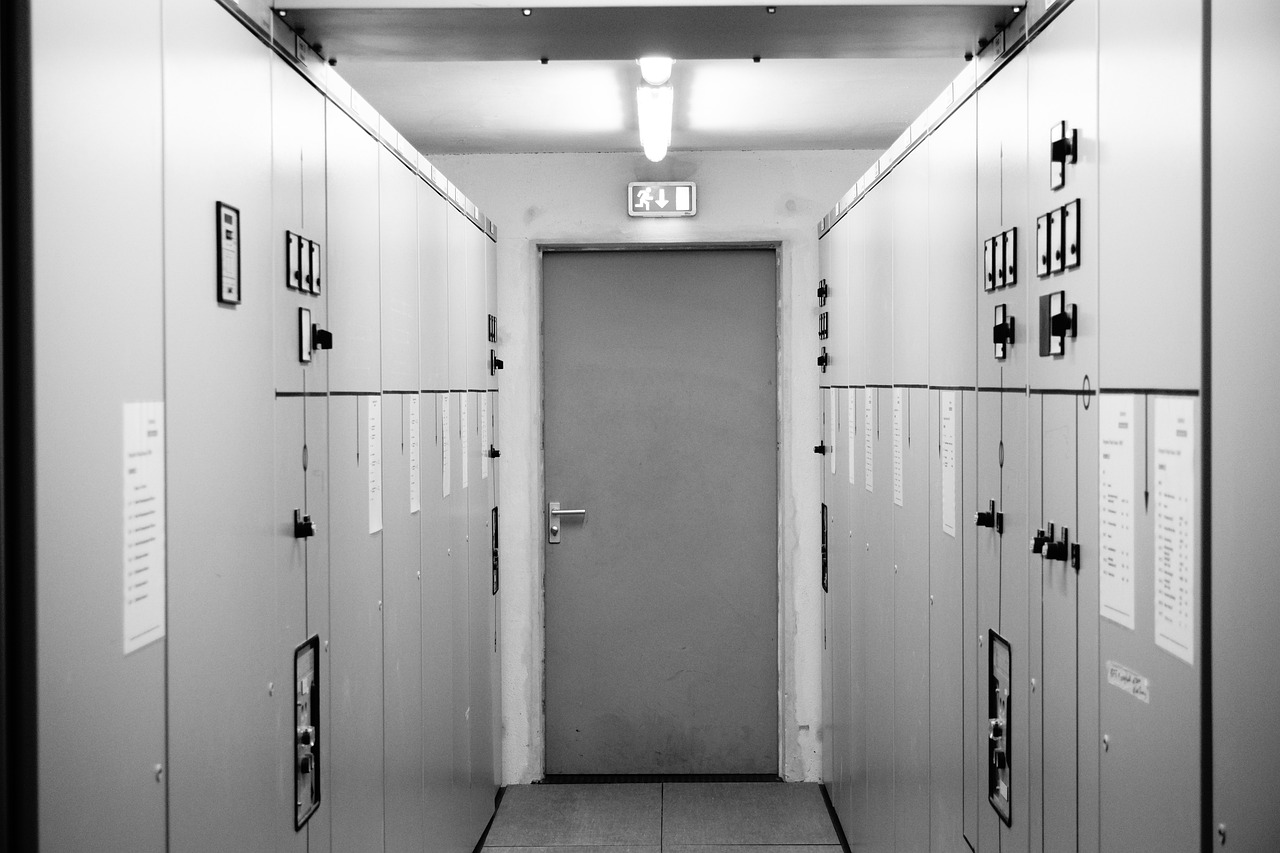Essential Medications to Keep in Your Emergency Kit
When it comes to emergencies, having the right medications on hand can make all the difference. Imagine you're out hiking, and suddenly you twist your ankle or get stung by a bee. The last thing you want is to be unprepared! This article outlines crucial medications that should be included in your emergency kit, ensuring preparedness for various situations. By keeping a well-stocked emergency kit, you can tackle minor injuries and unexpected health issues with confidence. Let's dive into the essential medications you should consider!
Understanding the importance of pain relief medications like ibuprofen and acetaminophen can help manage pain during emergencies. These medications are essential for treating headaches, muscle aches, and other discomforts. Whether you're dealing with a throbbing headache after a long day or sore muscles from an unexpected workout, having these pain relievers in your emergency kit can provide quick relief. It's like having a safety net that catches you when you fall! Just remember to follow the dosage instructions, as taking too much can lead to unwanted side effects. Keep them easily accessible, so you can grab them quickly when needed.
Having antihistamines on hand is vital for managing allergic reactions. Picture this: you're enjoying a picnic, and suddenly you realize that you've come into contact with pollen or a food allergen. The last thing you want is to be caught off guard! Common allergy medications like diphenhydramine (Benadryl) can help alleviate symptoms such as itching, sneezing, and hives. It's crucial to know when to use these medications, especially if you or someone in your group has a history of allergies.
Now, let's talk about a lifesaving device that can be a game-changer during severe allergic reactions: the epinephrine auto-injector. This little pen can save a life in the event of anaphylaxis, a severe and potentially life-threatening allergic reaction. It's essential to be familiar with its usage and importance. If you or a loved one has a known allergy, having an auto-injector in your kit is non-negotiable. But remember, it's not just about having it; you also need to be trained in how to administer it correctly. It's like having a fire extinguisher—you need to know how to use it before the flames start!
Recognizing the signs of anaphylaxis is crucial for timely intervention. Symptoms to watch for include:
- Difficulty breathing or wheezing
- Swelling of the face, lips, or throat
- Rapid or weak pulse
- Dizziness or fainting
Immediate action is essential. If you suspect someone is experiencing anaphylaxis, use the epinephrine auto-injector right away and call for emergency help. Remember, time is of the essence!
Proper storage and monitoring of expiration dates for epinephrine auto-injectors are essential for effectiveness. These devices should be stored at room temperature, away from direct sunlight, and checked regularly to ensure they haven't expired. An expired auto-injector may not work when you need it most, and that’s a risk you don’t want to take.
In some emergencies, antibiotics can be essential in treating infections. If you're venturing into the wilderness or engaging in activities that may lead to cuts or scrapes, consider including common antibiotics like amoxicillin or ciprofloxacin in your kit. However, it's crucial to understand that antibiotics should only be used as prescribed by a healthcare provider. Misuse can lead to antibiotic resistance, which is a growing concern in medicine today. So, while it’s great to have them on hand, always consult a professional before using them.
When emergencies strike, gastrointestinal issues can quickly become a problem. Medications for issues like nausea and diarrhea are important for managing digestive problems. Having anti-nausea medications such as ondansetron and anti-diarrheal medications like loperamide can help keep you comfortable when your stomach is in turmoil. Imagine being stuck in a situation where you can't get to a restroom—having these medications can be a lifesaver!
Oral rehydration solutions are vital for preventing dehydration, especially in cases of severe diarrhea or vomiting. You can easily prepare these solutions at home using clean water, salt, and sugar. It’s like creating your own little hydration station! Here’s a simple recipe:
Ingredients: - 1 liter of clean water - 6 teaspoons of sugar - 1/2 teaspoon of salt
Mix these ingredients well and drink as needed to replenish lost fluids. Staying hydrated is key in any emergency!
Including necessary prescription medications in your emergency kit is crucial for individuals with chronic conditions. If you rely on medications for conditions like asthma, diabetes, or hypertension, make sure to have a supply on hand. It's like having a lifeline that keeps you stable during unexpected situations. Additionally, keeping these medications accessible ensures you won’t scramble for them when you need them most.
Proper management of prescription medications involves regular checks and updates. Keep an updated list of medications and their dosages in your kit. This can be a simple printed list or a note on your phone. Regularly check expiration dates and replace any expired medications. Think of it as a tune-up for your emergency kit—keeping everything in top shape ensures you're ready for anything life throws your way!
Q: How often should I check my emergency kit?
A: It's a good idea to check your emergency kit at least twice a year to replace expired items and update medications.
Q: Can I include my regular medications in the emergency kit?
A: Yes, including your regular prescription medications is essential, especially if you have chronic conditions.
Q: Do I need a prescription for antibiotics?
A: Yes, antibiotics require a prescription, so consult your healthcare provider for guidance on what to include.

Over-the-Counter Pain Relievers
When it comes to emergencies, having the right medications on hand can make all the difference. are a crucial component of any emergency kit. Imagine being in a situation where you're dealing with a throbbing headache or muscle ache, and you have nothing to alleviate the pain. That's why medications like ibuprofen and acetaminophen should be your go-to options. They are not just for minor discomfort; they can be lifesavers in stressful situations.
Both ibuprofen and acetaminophen serve similar purposes but work in slightly different ways. Ibuprofen is a nonsteroidal anti-inflammatory drug (NSAID) that not only helps relieve pain but also reduces inflammation. This makes it particularly effective for conditions like sprains or strains, where swelling is involved. On the other hand, acetaminophen is an analgesic that targets pain and fever but does not address inflammation. This makes it a better choice for headaches or fevers. Understanding these differences can help you choose the right medication for your specific needs.
It's also important to consider the dosage and frequency of these medications. Generally, ibuprofen can be taken every 6 to 8 hours, while acetaminophen can be taken every 4 to 6 hours. However, it's crucial to follow the guidelines on the packaging to avoid any adverse effects. An overdose of acetaminophen, for instance, can lead to serious liver damage, while excessive ibuprofen can harm the stomach lining and kidneys. Always keep a close eye on the expiration dates and ensure that you have the correct dosages for adults and children alike.
In your emergency kit, you should consider including:
- Ibuprofen: For pain relief and inflammation.
- Acetaminophen: For headaches and fever management.
Additionally, it’s wise to have a small guide or cheat sheet in your emergency kit that outlines the dosages for both adults and children. This can be a quick reference in high-stress situations, ensuring you administer the correct amount without second-guessing yourself.
Lastly, while over-the-counter pain relievers can be incredibly helpful, they are not a substitute for professional medical advice. If pain persists or worsens, it’s essential to seek medical attention. In the chaos of an emergency, having these medications readily available can provide a sense of relief and allow you to focus on what truly matters—your safety and well-being.

Allergy Medications
Allergies can strike at the most unexpected moments, turning a peaceful day into a chaotic scramble for relief. Having the right in your emergency kit can make a world of difference when those pesky allergens come knocking. Whether it's pollen, pet dander, or a surprise reaction to a food item, being prepared with the right medications can help you manage these situations effectively. Antihistamines are your first line of defense against allergic reactions, and they come in various forms, including tablets, liquids, and nasal sprays.
When it comes to antihistamines, you might want to consider including both first-generation and second-generation options in your kit. First-generation antihistamines, like diphenhydramine (Benadryl), are effective but can cause drowsiness. On the other hand, second-generation antihistamines, such as loratadine (Claritin) and cetirizine (Zyrtec), are less likely to make you sleepy, making them a great choice for daytime use. Here’s a quick comparison:
| Type | Example | Common Use | Drowsiness |
|---|---|---|---|
| First-Generation | Diphenhydramine (Benadryl) | Seasonal allergies, hives | Yes |
| Second-Generation | Loratadine (Claritin) | Seasonal allergies | No |
| Second-Generation | Cetirizine (Zyrtec) | Seasonal allergies | Minimal |
It's essential to know when to use these medications. For mild allergic reactions, such as sneezing or a runny nose, first-generation antihistamines can provide quick relief. However, for ongoing allergies, second-generation options are often more suitable due to their longer-lasting effects and reduced sedation. Always consult with a healthcare professional to determine which medication is best for your specific needs.
Now, if you or someone you know has a history of severe allergic reactions, having an epinephrine auto-injector in your emergency kit is non-negotiable. These devices are lifesavers for those at risk of anaphylaxis. They work by quickly reversing the symptoms of a severe allergic reaction, such as difficulty breathing or swelling of the throat. Just remember, having the auto-injector is only half the battle; knowing how to use it is crucial. Make sure to familiarize yourself with its operation, and consider practicing with a trainer device if available.
In addition to antihistamines and epinephrine, it’s also wise to include some topical treatments, like hydrocortisone cream, for localized allergic reactions, such as rashes or insect bites. This can help alleviate itching and inflammation, providing much-needed comfort in a pinch.
Ultimately, the key to managing allergies effectively during emergencies is preparation. Regularly check your emergency kit to ensure all medications are within their expiration dates and that you have the correct dosages for everyone who might need them. Remember, being proactive today can save you from a lot of discomfort tomorrow!
- What should I do if I experience an allergic reaction?
Immediately take an antihistamine if it's mild. For severe reactions, use an epinephrine auto-injector and seek emergency medical help. - How do I store allergy medications?
Keep them in a cool, dry place, away from direct sunlight. Check expiration dates regularly. - Can I take multiple allergy medications at once?
Consult your healthcare provider, as some combinations may cause increased side effects.

Epinephrine Auto-Injectors
Epinephrine auto-injectors are lifesaving devices designed for individuals who are at risk of severe allergic reactions, known as anaphylaxis. Imagine being in a situation where a bee sting or a peanut can lead to a life-threatening reaction; this is where these auto-injectors come into play. They deliver a dose of epinephrine quickly, helping to reverse the symptoms of anaphylaxis, such as swelling, difficulty breathing, and a rapid drop in blood pressure. It's crucial to understand not only how to use these devices but also the importance of having them readily available in your emergency kit.
When you think about it, having an epinephrine auto-injector is like having a fire extinguisher in your home. You hope you never have to use it, but when the moment arises, you’ll be incredibly thankful it’s there. These devices are typically easy to use, even for someone without medical training. Most come with clear instructions on how to administer the medication, and many manufacturers provide training tools to ensure you feel confident in an emergency.
However, it’s not just about having the auto-injector; it’s also about knowing when to use it. Anaphylaxis can escalate quickly, and recognizing the signs is crucial. Common symptoms include:
- Swelling of the face, lips, or throat
- Difficulty breathing or wheezing
- Rapid heartbeat or palpitations
- Dizziness or fainting
If you or someone nearby experiences these symptoms after exposure to an allergen, it’s essential to act fast. Administer the epinephrine auto-injector immediately and seek emergency medical assistance. Remember, the effects of epinephrine are temporary, and further medical evaluation is necessary.
One key factor to keep in mind is the storage of your epinephrine auto-injector. These devices should be kept at room temperature and protected from direct sunlight. Extreme temperatures can affect their effectiveness, so be sure to check the manufacturer's guidelines. Additionally, always keep an eye on the expiration date, as expired epinephrine may not work as intended. Regularly checking your emergency kit and replacing any expired medications is a good habit to develop.
In summary, epinephrine auto-injectors are an essential component of any emergency kit for individuals with severe allergies. Understanding their use, recognizing the symptoms of anaphylaxis, and ensuring proper storage can make all the difference in an emergency situation. It’s not just about being prepared; it’s about being empowered to act when it matters most.

Signs of Anaphylaxis
Recognizing the is crucial for ensuring immediate intervention in a life-threatening situation. Anaphylaxis is a severe allergic reaction that can escalate quickly, often within minutes of exposure to an allergen. It's like a fire that starts small but can engulf everything around it if not extinguished promptly. So, what should you be on the lookout for? Here are the key symptoms to watch for:
- Skin Reactions: This can include hives, redness, or swelling, particularly in areas like the face, lips, or throat.
- Respiratory Issues: Difficulty breathing, wheezing, or a tight feeling in the chest can indicate that the airway is constricting.
- Gastrointestinal Symptoms: Nausea, vomiting, or abdominal cramps may occur as the body reacts to the allergen.
- Cardiovascular Symptoms: A sudden drop in blood pressure can lead to dizziness, fainting, or even loss of consciousness.
- Swelling: Particularly of the throat or tongue, which can obstruct breathing.
It's essential to act quickly if you or someone around you exhibits these signs. Think of it as a race against time; the faster you respond, the better the chances of recovery. If you suspect anaphylaxis, administer an epinephrine auto-injector immediately and call for emergency medical assistance. Remember, even if symptoms seem to improve after administering epinephrine, it’s vital to seek professional medical help as symptoms can return.
Being aware of these signs can be the difference between life and death. Just like knowing the exits in a crowded theater, being able to identify anaphylaxis symptoms can help you navigate a critical situation safely. Always keep your emergency kit stocked with the necessary medications, and ensure that you and those around you are educated about the signs of anaphylaxis.

Storage and Expiration
When it comes to epinephrine auto-injectors, proper storage and awareness of expiration dates are absolutely critical for ensuring their effectiveness during an emergency. These devices can be lifesavers, but if they are not stored correctly, their potency may diminish, rendering them useless when you need them the most. It's essential to keep auto-injectors at room temperature, away from direct sunlight, and in a location that is easily accessible yet protected from extreme temperatures.
Additionally, you should regularly check the expiration dates on your epinephrine auto-injectors. Most auto-injectors have a shelf life of about 12 to 18 months from the date of manufacture, but this can vary by brand. Always make a habit of checking these dates every few months. If an auto-injector is past its expiration date, it’s crucial to replace it immediately. Keeping a simple checklist can help you stay on top of this:
| Item | Expiration Date | Action Required |
|---|---|---|
| Epinephrine Auto-Injector | [Insert Date] | [Replace if expired] |
| Other Medications | [Insert Date] | [Replace if expired] |
In addition to checking expiration dates, it’s also wise to familiarize yourself with the signs of damage to the auto-injector. If you notice any signs of discoloration in the solution or if the injector is cracked or damaged, it should be replaced immediately. A little diligence in this area can make a significant difference in an emergency. Remember, having a fully functional auto-injector can mean the difference between life and death for someone experiencing a severe allergic reaction.
In conclusion, being proactive about the storage and expiration of your epinephrine auto-injectors and other medications is not just a good practice; it's a vital part of your emergency preparedness plan. By ensuring that these devices are always in optimal condition, you can approach emergencies with greater confidence and peace of mind.
- How often should I check the expiration date of my medications?
It's advisable to check the expiration dates every three months to ensure that all medications are up-to-date. - Can I store epinephrine auto-injectors in the fridge?
No, epinephrine auto-injectors should be kept at room temperature. Storing them in extreme temperatures can affect their effectiveness. - What should I do if my auto-injector is expired?
Replace it immediately. Expired auto-injectors may not work effectively and can be dangerous in an emergency.

Antibiotics for Infections
When it comes to emergencies, having the right medications can make all the difference, and antibiotics are no exception. These powerful drugs are essential for fighting off infections that can arise from cuts, scrapes, or even more serious injuries. Imagine being in a situation where a simple cut gets infected; without antibiotics, what could have been a minor issue might escalate into something far more dangerous. Therefore, including antibiotics in your emergency kit is not just a good idea—it's a necessity.
There are several types of antibiotics that you might consider including in your emergency kit, each with its own specific uses. For instance, amoxicillin is commonly used to treat a variety of infections, including respiratory and skin infections, while ciprofloxacin is effective against urinary tract infections and certain types of gastrointestinal infections. However, it's crucial to remember that antibiotics should only be used when necessary, as misuse can lead to antibiotic resistance, which is a growing concern in the medical community.
In your emergency kit, you might want to include a few key antibiotics along with their indications and dosages. Here’s a simple table to illustrate some common antibiotics you might consider:
| Antibiotic | Common Uses | Dosage |
|---|---|---|
| Amoxicillin | Respiratory tract infections, skin infections | 500 mg every 8 hours |
| Ciprofloxacin | Urinary tract infections, gastrointestinal infections | 500 mg every 12 hours |
| Doxycycline | Respiratory infections, certain skin infections | 100 mg every 12 hours |
It's important to consult with a healthcare professional before adding these medications to your kit. They can help you understand which antibiotics are appropriate for your specific needs and how to use them safely. Furthermore, always ensure that you have a reliable source of information regarding the treatment of infections, as self-diagnosis can lead to complications.
In addition to having antibiotics on hand, it's also vital to know how to recognize the signs of an infection. Symptoms such as increased redness, swelling, warmth, or discharge from a wound can indicate an infection that may require antibiotic treatment. The quicker you can identify these signs, the better your chances of a full recovery.
Lastly, storing antibiotics properly is essential to maintain their effectiveness. Keep them in a cool, dry place away from direct sunlight, and always check expiration dates regularly. Having a well-organized emergency kit can save precious time in a crisis, allowing you to focus on what truly matters—getting the help you need.
- What are antibiotics? Antibiotics are medications used to treat bacterial infections by killing bacteria or preventing their growth.
- Can I use antibiotics for viral infections? No, antibiotics are not effective against viruses, such as the common cold or flu.
- How should I store antibiotics? Store antibiotics in a cool, dry place away from sunlight and keep track of expiration dates.
- What should I do if I experience side effects? If you experience side effects, contact a healthcare professional immediately for guidance.

Gastrointestinal Medications
When it comes to emergencies, gastrointestinal issues can be a real pain in the gut—literally! Imagine being in a situation where you're dealing with nausea, vomiting, or diarrhea, and you have no way to alleviate your discomfort. That's why having a selection of in your emergency kit is not just a good idea; it's essential. These medications can help manage digestive problems that can arise due to stress, foodborne illnesses, or even just the change in routine during emergencies.
Among the most important types of gastrointestinal medications to consider are anti-nausea medications and anti-diarrheal medications. Anti-nausea medications, such as ondansetron, can be a lifesaver when you're feeling queasy. They work by blocking signals in the brain that trigger nausea and vomiting, allowing you to regain some control over your situation. On the other hand, anti-diarrheal medications like loperamide can help slow down bowel movements, providing relief from the discomfort of frequent trips to the restroom. However, it's crucial to remember that while these medications can provide relief, they should be used wisely and not as a substitute for seeking medical attention when necessary.
In addition to these medications, having oral rehydration solutions on hand is critical, especially in cases of severe diarrhea or vomiting. Dehydration can sneak up on you, and before you know it, you might be feeling lightheaded and weak. Oral rehydration solutions, which can be easily prepared with clean water, salt, and sugar, can help replenish lost fluids and electrolytes. For those who prefer pre-packaged options, many pharmacies offer ready-to-use solutions that are both effective and convenient.
To make sure you're fully prepared, consider creating a small table in your emergency kit that outlines the types of gastrointestinal medications you have, their dosage, and any important notes regarding their use. Here's a simple example:
| Medication | Dosage | Notes |
|---|---|---|
| Ondansetron | 4 mg orally | Take before meals if feeling nauseous. |
| Loperamide | 2 mg after the first loose stool, then 1 mg after each subsequent loose stool. | Do not exceed 8 mg in 24 hours without consulting a doctor. |
| Oral Rehydration Solution | Follow package instructions | Use in case of severe diarrhea or vomiting. |
Having these medications on hand can provide peace of mind and ensure that you’re ready to tackle any gastrointestinal disturbances that may arise during an emergency. Just remember to check expiration dates regularly and replace any medications that are nearing their end.
In conclusion, gastrointestinal medications are a crucial component of your emergency kit. They not only help manage symptoms but also allow you to focus on what really matters—staying safe and healthy during unexpected situations. So, make sure to stock up and keep your emergency kit ready to go!
Q: Why should I include gastrointestinal medications in my emergency kit?
A: Gastrointestinal issues can arise unexpectedly during emergencies due to stress, changes in diet, or foodborne illnesses. Having medications on hand can help manage these symptoms effectively.
Q: How do I know which gastrointestinal medications to include?
A: Consider including anti-nausea medications, anti-diarrheal medications, and oral rehydration solutions. It's also wise to consult with a healthcare professional for personalized recommendations.
Q: Are there any risks associated with using anti-diarrheal medications?
A: Yes, while anti-diarrheal medications can provide relief, they should be used cautiously. If diarrhea is accompanied by high fever or blood in the stool, it's important to seek medical attention instead of self-treating.

Oral Rehydration Solutions
When it comes to emergencies, staying hydrated can be a lifesaver, especially if someone is experiencing severe diarrhea or vomiting. Oral rehydration solutions (ORS) are specifically designed to replenish lost fluids and electrolytes, making them an essential addition to your emergency kit. These solutions are easy to prepare and can be a game-changer in critical situations.
ORS typically consists of a precise balance of water, sugar, and salts. The sugar helps facilitate the absorption of sodium in the intestines, while the salts replace the electrolytes lost through dehydration. You might be wondering, "How can I make my own ORS?" Well, it's simple! You can create a homemade solution using common ingredients:
| Ingredients | Measurements |
|---|---|
| Water | 1 liter (about 4 cups) |
| Sugar | 6 teaspoons |
| Salt | 1/2 teaspoon |
Mix these ingredients thoroughly, and you have your very own ORS ready to go! It's crucial to note that this solution should be consumed within 24 hours for maximum effectiveness. If you're unable to prepare it yourself, many commercial ORS products are available over the counter, ensuring you have access to these vital fluids.
In addition to treating dehydration, ORS can also help manage mild cases of diarrhea. It’s a fantastic way to keep your body functioning properly when it’s losing fluids rapidly. However, it’s essential to recognize that while ORS is effective for mild to moderate dehydration, severe cases may require medical attention. Always consult with a healthcare professional if symptoms persist or worsen.
So, the next time you're packing your emergency kit, don’t forget to include the ingredients for oral rehydration solutions. They’re easy to store, simple to prepare, and could make a significant difference in an emergency. Just imagine being able to provide instant relief and hydration to a loved one in distress—it's a small step that can lead to big outcomes!
- What are the signs of dehydration? Symptoms include dry mouth, extreme thirst, fatigue, and dark yellow urine.
- How often should ORS be consumed? ORS should be consumed regularly, especially after each episode of diarrhea or vomiting.
- Can ORS be used for children? Yes, ORS is safe and effective for children, but consult a pediatrician for severe cases.
- What should I do if symptoms do not improve? Seek medical attention if dehydration symptoms persist or worsen.

Prescription Medications
When it comes to preparing your emergency kit, one of the most crucial elements to consider is the inclusion of . For individuals with chronic conditions, having a reliable supply of necessary medications can mean the difference between managing a health crisis effectively and facing a potentially dangerous situation. Imagine being caught in an emergency without your daily medications—it's a scenario no one wants to experience. Therefore, it’s essential to plan ahead and ensure that your emergency kit is stocked with the medications you need.
First and foremost, you should identify which prescription medications are absolutely vital for your health. This typically includes medications for conditions such as:
- Diabetes - Insulin or oral hypoglycemics
- Hypertension - Blood pressure medications
- Asthma - Inhalers or corticosteroids
- Cardiovascular issues - Heart medications
- Thyroid disorders - Thyroid hormone replacements
It's not just about having these medications, though; you also need to consider the dosages and frequency of administration. Keeping an updated medication list is crucial. This list should include not only the names and dosages but also the prescribing physician’s information and any relevant medical history. Having this documentation readily available can be invaluable in case you need to seek medical help while away from home.
Moreover, you should take care to store your prescription medications properly. Many medications require specific conditions to maintain their efficacy, such as temperature control and protection from light. For example, some medications might need to be kept in a cool, dry place, while others might be sensitive to temperature fluctuations. Always check the storage instructions on the medication packaging and ensure that your emergency kit meets these requirements.
Another important consideration is the expiration dates of your medications. Regularly check the dates and replace any expired medications promptly. It’s advisable to set a reminder on your calendar every few months to review your emergency kit. This ensures that not only is your kit stocked, but it is also current and effective when you need it most.
In addition to the medications themselves, consider including a few essential items to help manage your medications effectively:
- A pill organizer to keep track of daily doses
- A copy of your prescriptions in case you need a refill
- Any necessary medical devices, such as a blood glucose meter for diabetics
Lastly, don’t forget the importance of communication. If you have a family member or trusted friend who is aware of your health conditions and medication needs, make sure they know where your emergency kit is stored. In the event of an emergency, they could help you access your medications quickly and efficiently.
Q: How often should I check my emergency kit for expired medications?
A: It’s recommended to check your emergency kit every 3 to 6 months to ensure all medications are current and effective.
Q: What should I do if I run out of my prescription medications?
A: Contact your healthcare provider for a refill or alternative options as soon as possible. Having an updated list of your medications can help expedite this process.
Q: Can I store my medications in a cooler for better preservation?
A: Some medications do require cooler storage, but not all. Always refer to the specific storage instructions provided with your medications to avoid compromising their effectiveness.

Medication Management
When it comes to managing your prescription medications, being proactive is key. Imagine your emergency kit as a lifeboat; without the right supplies, it won't save you when you need it most. Regular checks and updates are essential to ensure that everything is in order. Start by keeping an updated list of all medications, including their dosages and expiration dates. You don’t want to be fumbling through a kit only to find that your lifesaving medication has expired!
It’s also important to categorize your medications based on their purpose. For instance, you might have a section for pain relievers, another for antibiotics, and yet another for chronic condition medications. This organization can save you precious time during an emergency, allowing you to grab what you need without sifting through a chaotic mess. You can create a simple table to help you keep track:
| Medication | Dosage | Expiration Date |
|---|---|---|
| Ibuprofen | 200 mg | 2025-06-30 |
| Amoxicillin | 500 mg | 2024-12-15 |
| Metformin | 1000 mg | 2023-09-01 |
Additionally, consider setting reminders on your phone or calendar to check your medications every few months. This is not just a good practice; it's a lifesaver! Marking your calendar can help you avoid situations where you might need a medication urgently, only to find out it’s no longer effective. Remember, it’s not just about having medications; it’s about having the right medications that are in good condition.
Furthermore, if you have multiple family members, it’s wise to keep a shared list that includes everyone’s medications. This can be particularly beneficial in emergency situations where someone else might need to access your kit. You can use a simple cloud-based document or a shared note on your smartphone to keep everyone informed. In this way, you can ensure that no one is left in the dark, and everyone knows what’s available in the kit.
Finally, always consult with your healthcare provider about any changes in your medication regimen. Sometimes, medications get updated, or new ones become available that might better suit your needs. Regular communication with your doctor can help you stay on top of your health and ensure that your emergency kit is stocked with the best possible options.
- How often should I check my emergency kit? It's advisable to check your emergency kit at least every six months to ensure that medications are not expired and supplies are replenished.
- What should I do if I have expired medications? Dispose of expired medications properly according to local guidelines, and replace them with new ones as soon as possible.
- Can I include over-the-counter medications in my emergency kit? Absolutely! Over-the-counter medications like pain relievers and allergy medications are essential for managing common health issues during emergencies.
- How do I store my emergency medications? Store medications in a cool, dry place, away from direct sunlight, and ensure they are easily accessible in your emergency kit.
Frequently Asked Questions
- What essential medications should I include in my emergency kit?
It's crucial to have a variety of medications in your emergency kit. Some essential items include over-the-counter pain relievers like ibuprofen and acetaminophen, allergy medications such as antihistamines, antibiotics for potential infections, gastrointestinal medications for nausea and diarrhea, and any necessary prescription medications for chronic conditions.
- How do I know which allergy medications to keep on hand?
Consider your personal allergy history and consult with a healthcare professional. Common options include antihistamines like diphenhydramine for mild reactions and epinephrine auto-injectors for severe allergies. Make sure to familiarize yourself with their usage and keep them accessible.
- Why are epinephrine auto-injectors important?
Epinephrine auto-injectors are lifesavers for those at risk of anaphylaxis. They work quickly to reverse severe allergic reactions, but it's vital to know how to use them properly. Training is recommended to ensure you can act swiftly in an emergency.
- How should I store my medications in the emergency kit?
Store medications in a cool, dry place, away from direct sunlight. Make sure to check expiration dates regularly and replace any expired items. Keeping an organized kit will help you find what you need quickly during an emergency.
- What should I do if I suspect an infection?
If you suspect an infection, antibiotics may be necessary. However, it's essential to consult a healthcare professional before self-treating. In your emergency kit, consider including broad-spectrum antibiotics that are commonly prescribed for various infections.
- How can I prepare oral rehydration solutions?
Oral rehydration solutions can be easily prepared at home. Mix one liter of clean water with six teaspoons of sugar and half a teaspoon of salt. This mixture helps replace lost fluids and electrolytes, especially during episodes of severe diarrhea or vomiting.
- What is the best way to manage prescription medications in my emergency kit?
Keep an updated list of all prescription medications, including dosages and any specific storage requirements. Regularly check your supply and ensure you have enough on hand for emergencies, especially if you have chronic conditions.



















